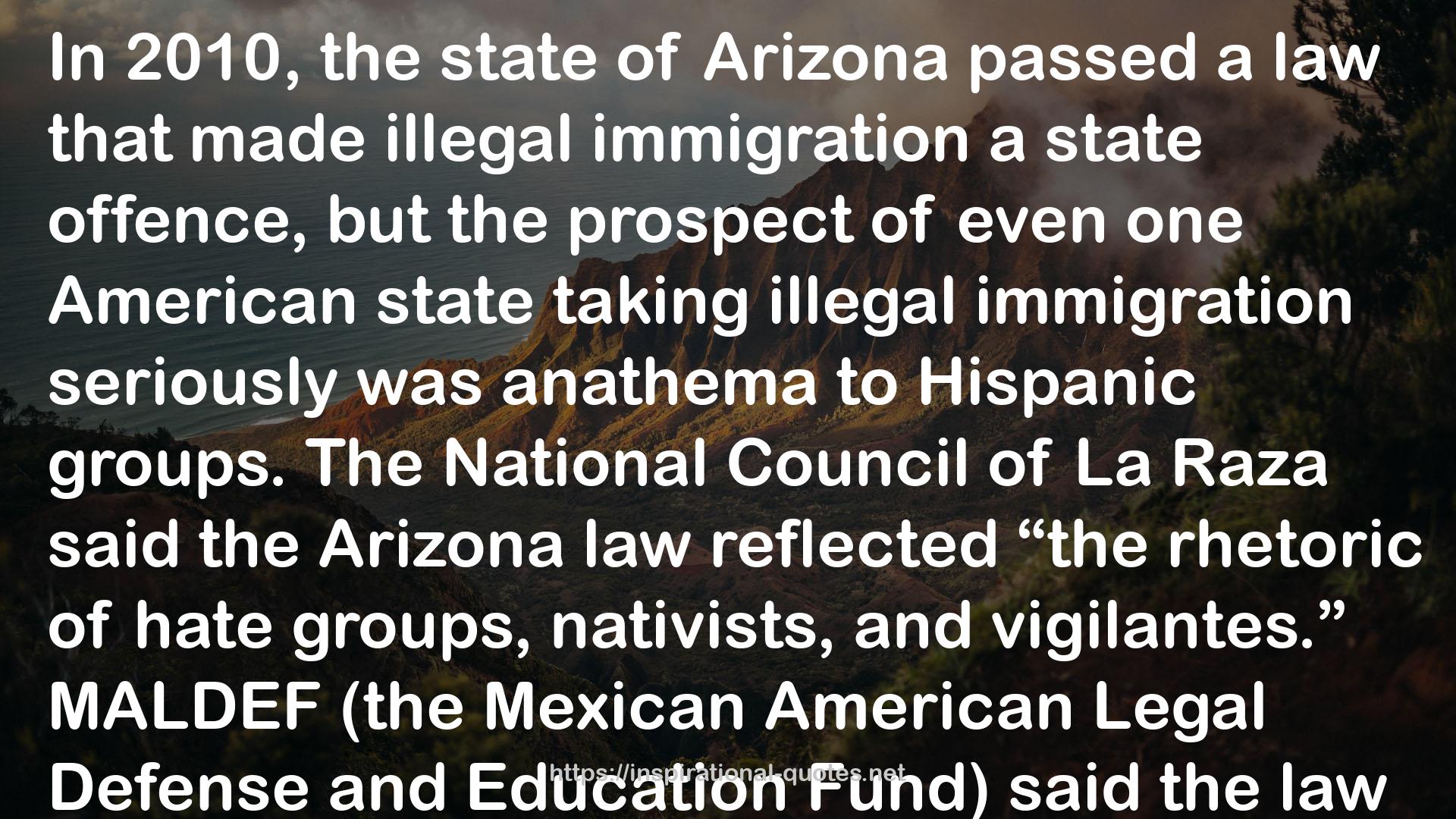" In 2010, the state of Arizona passed a law that made illegal immigration a state offence, but the prospect of even one American state taking illegal immigration seriously was anathema to Hispanic groups. The National Council of La Raza said the Arizona law reflected “the rhetoric of hate groups, nativists, and vigilantes.” MALDEF (the Mexican American Legal Defense and Education Fund) said the law “launches Arizona into a spiral of pervasive fear.” The president of LULAC (League of United Latin American Citizens), Rosa Rosales, called it a “racist law,” and an official with the Congressional Hispanic Caucus said it would “open the door to discrimination and racial profiling.” One of Arizona’s congressmen, Democrat Raul Grijalva, called for a boycott of his own state.
The law, of course, said nothing about race; it merely paralleled largely unenforced provisions of federal immigration law. The people of Arizona were tired of playing host to an estimated half million illegal immigrants no matter where they came from. Hispanic groups were furious because they feared fellow Hispanics might be deported. We can assume they would have had no objections to the law if most illegal immigrants were Irishmen or Poles. There was irony but nothing unusual when Hispanics, who were acting out of pure racial solidarity, accused Arizonans, who were trying to enforce federal law, of racism. "
― Jared Taylor , White Identity: Racial Consciousness in the 21st Century
